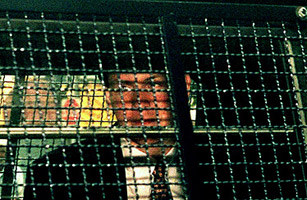
Barings was the oldest investment bank in Britain, listing among its clients the Queen herself. Indeed, the bank's pedigree was so distinguished that it did not have a logo, it had a crest. And yet, in order to survive in the late 20th century, Barings called on young, not necessarily upper-class go-getters who knew how to work the new instruments of global finance like derivatives. Among these hungry young climbers was Nick Leeson, the son of a council estates plasterer. Starting in Barings' back office, he proved himself adept at understanding the derivatives market and soon found himself stationed in Singapore, betting on market shifts around the world. At one point, his speculations accounted for 10% of Barings profits. He was a star. But he also knew how to manipulate the internal system and created a secret Barings account whose losses the bank automatically covered. He started risking huge amounts of money on the Nikkei, betting that the Japanese stock market would go up. Instead it went crashing down with a gigantic earthquake in Kobe on Jan. 17, 1995. Leeson's losses mounted quickly until he realized they would swamp not only him but all of Barings. And indeed it did. They came to more than $1 billion, an amount the bank could not cover. It collapsed that March and was bought by the Dutch financial company ING for one British pound. Leeson fled but was extradited to Singapore where he served six and a half years for fraud. He is now the manager of a soccer team in Scotland.
From the Archive:
Going for Broke